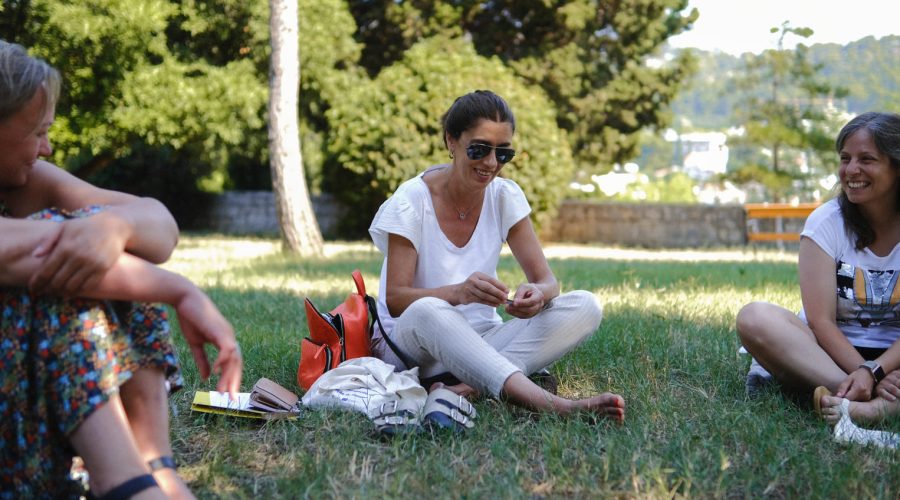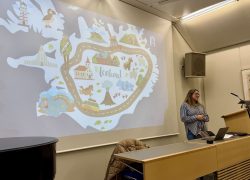Developing Soft Skills in Education

Despite their importance, soft skills are often taught as blocks on their own in the educational system. Communication is usually trained through classroom debates, creativity through art projects, critical thinking through writing assignments, collaboration through group works. But, this way, the system fails to capture the interdisciplinary nature of soft skills, treating them as compartments rather than integrated competencies.
Soft skills have always been essential for success, though we often didn’t recognize their importance. For years, the focus has been on academic achievements—grades, final exams, scores, and percentages—all measurable indicators of knowledge. In doing so, we’ve overlooked skills that arguably matter even more: communication, collaboration, critical thinking, and creativity.
The reason for this neglect is simple. These skills aren’t as easy to “measure.” You can’t assign a grade to “collaboration” or “critical thinking” as you can to a math test. So, they’ve been deprioritized. Yet, in the end, it’s these very skills that make all the difference. Let me offer an example.
Imagine you’re interviewing three final candidates for a job. They all have similar backgrounds, comparable grades, and little to no relevant work experience. They’ve made it this far because they spelled your company’s name correctly in their application, didn’t rely entirely on ChatGPT to write their motivation letters, and performed reasonably well on any pre-employment tests.
Who gets the job? The candidate with the strongest soft skills: the one who communicates effectively, demonstrates the ability to work well with others, and provides thoughtful, critical answers. If they also show resourcefulness and the ability to think creatively, you’ve likely found the ideal hire. In countless real-world scenarios, success hinges on soft skills. And yet, schools continue to underemphasize their development. So, how do we change that?

Soft Skills vs. Hard Skills: Why Schools Miss the Mark
Today, developing soft skills is often overshadowed by the emphasis on hard skills—those easy-to-measure technical abilities. This traces back to the origins of modern education, which was designed in the 19th century to produce disciplined, obedient workers. Classrooms consisted of benches, chairs, a blackboard, and a strict teacher whose primary role was to ensure order and adherence to routine.
Fast forward to the present, and while the strict teacher might be less common, the basic structure of education has barely changed. Many classrooms haven’t moved much beyond tools like Kahoot. Students are still expected to sit still for hours, absorb information like sponges, and conform to a standardized educational model that doesn’t account for individual differences and talents.
Einstein’s wisdom remains strikingly relevant: “Everybody is a genius. But if you judge a fish by its ability to climb a tree, it will live its whole life believing that it is stupid.” It’s time to rethink education and prioritize developing soft skills alongside hard skills, creating a more balanced and holistic approach to learning.
Understanding and developing soft skills
Soft skills are the backbone of success in both personal and professional fields, yet their value often remains overlooked in favour of technical competencies, also known as hard skills.
Unlike hard skills, which are typically specific and measurable abilities, soft skills are more fluid and encompass a wide range of interpersonal attributes. These include communication, emotional intelligence, adaptability, leadership, teamwork, problem-solving and others: soft skills are essential both for thriving in the workplace and achieving personal fulfilment.
Soft skills are best developed through experiential learning opportunities that provide context and relevance. For our students this can involve participating in team projects, engaging in group discussions, taking on leadership roles, volunteering in community initiatives. These experiences allow them to hone their communication, collaboration, problem-solving, and leadership abilities in authentic settings.
Feedback also plays a critical role in the development of soft skills. Constructive feedback from peers, and teachers, or even self-assessment tools can offer valuable insights into areas for improvement and guide students in refining their soft skills. Creating a culture of feedback and continuous learning fosters a growth mindset, where individuals embrace challenges, learn from failures and continuously strive for improvement.
Soft skills development: Critical thinking at schools
Generations of Gen Z and Alpha students are growing up immersed in technology and, more recently, artificial intelligence. This makes it essential for us to teach them critical thinking skills—how to process information, analyze it, and consider deeply where it came from, who said it, why they said it, and the basis for their claims.
In a world dominated by social media influencers, teachers remain some of the most powerful influencers in a student’s life. This is a significant responsibility and a remarkable superpower, one that can shape the lives of each and every student. It’s vital that we recognize this influence and use it wisely.
Developing soft skill of collaboration
The current state of education is in need of a revolutionary shift in its approach: it needs to acknowledge the integral role of movement and exploration in the learning process. Scientific evidence abundantly supports the fact that physical activity benefits memory retention and the acquisition of new knowledge. This is why we promote project-based learning, experience-based learning, activities that promote collaboration and team-work. Students learn and retain information longer, and learn more clearly. With experience-based learning they learn more clearly and understand underlying patterns.
Instead of nurturing their innate curiosity, children today are often rewarded for memorizing facts rather than truly understanding them, while outside-the-box creativity is frequently overlooked or even discouraged in the classroom.
Instead of learning from nature, unexpressed and suppressed, they only learn theory from books, which leads to frustration and disengagement. This discord between their natural inclinations and the demands of the educational system blocks their overall learning experience and hold back their development.
Why soft skills matter
Soft skills are increasingly recognized as indispensable assets in today’s work field. While technical expertise and academic qualifications may open doors, it is soft skills that enable individuals to thrive in multiple personal and professional contexts. The significance of soft skills lies in their ability to facilitate effective communication, collaboration, problem-solving, and adaptability, attributes that are essential for success in basically every field of life. They play a pivotal role in fostering positive interpersonal relationships and effective communication. Whether in the workplace, school or social settings, the ability to convey ideas clearly, listen actively and empathize with others is extremely valuable. Effective communication skills enable individuals to articulate their thoughts and express their needs.
Soft skills are also useful in driving innovation and problem-solving. Today, success often centers in one’s ability to think critically, creatively and adaptively when facing challenges. Individuals with strong critical thinking skills can analyze complex situations, evaluate alternatives, and make informed decisions, while those with creativity can generate novel ideas, approaches and solutions. Adaptability and resilience enable individuals to navigate change and overcome setbacks.
Soft skills also play a crucial role in effective teamwork and collaboration. Success is rarely achieved in isolation but rather through collective effort and collaboration. Teamwork requires individuals to collaborate effectively, reinforce each other’s strengths, and communicate openly and in a transparent way.
Demands of the 21st-century global economy
Soft skills such as empathy, resilience, and cultural competence are increasingly recognized as essential for success in the modern workforce. But traditional schooling often prioritizes mere memorization and standardized testing over the development of these interpersonal competencies, leaving students not prepared for the demands of the 21st-century global economy.
Educators should create learning environments that cultivate holistic intelligence and empower students to thrive in the complex work field. This paradigm shift requires a revaluation of curriculum design to prioritize experiential learning, interdisciplinary collaboration and the integration of technology as cognitive tools. This way we can unlock the full potential of education to shape future generations.
The 4 C’s of soft skills
However, despite their importance, soft skills are often taught as blocks on their own in the educational system. Communication is usually trained through classroom debates, creativity through art projects, critical thinking through writing assignments, collaboration through group works. But, this way, the system fails to capture the interdisciplinary nature of soft skills, treating them as compartments rather than integrated competencies.
The development of soft skills is vital in today’s world. It’s important for educational institutes, starting from schools, to recognize the value of this kind of skills (which are usually overlooked and positioned in a lower step of importance compared to hard skills) and prioritize their development. Obviously, a shift of this kind requires a shift in mindset also: it’s important to turn toward a more holistic vision regarding intelligence and the way it can expand, acknowledging the fact that it interconnects mind, body and environment.
To foster the growth of soft skills, the faster way is to embrace experiential learning opportunities, interdisciplinary approaches and a culture that emphasize feedback and continuous improvement.
By understanding the importance of soft skills and actively working to develop them, schools can create the perfect environment for their students to learn how to navigate the real world.
To get ideas on how to develop critical thinking in your students, read our next blog here.
Content
You may also like:

Teaching civic education and citizenship elementary and secondary school students belongs in every subject

Best free AI tools for teachers 2026: Free teachers' toolbox

Inside Iceland’s Education System: Trust, Nature, Clarity

How to make ChatGPT work for you: 5 prompt-writing hacks for teachers

ChatGPT for Teachers and Students: A Friend or a Foe?

The Pomodoro Technique: A Game-Changer for Students and Teachers
